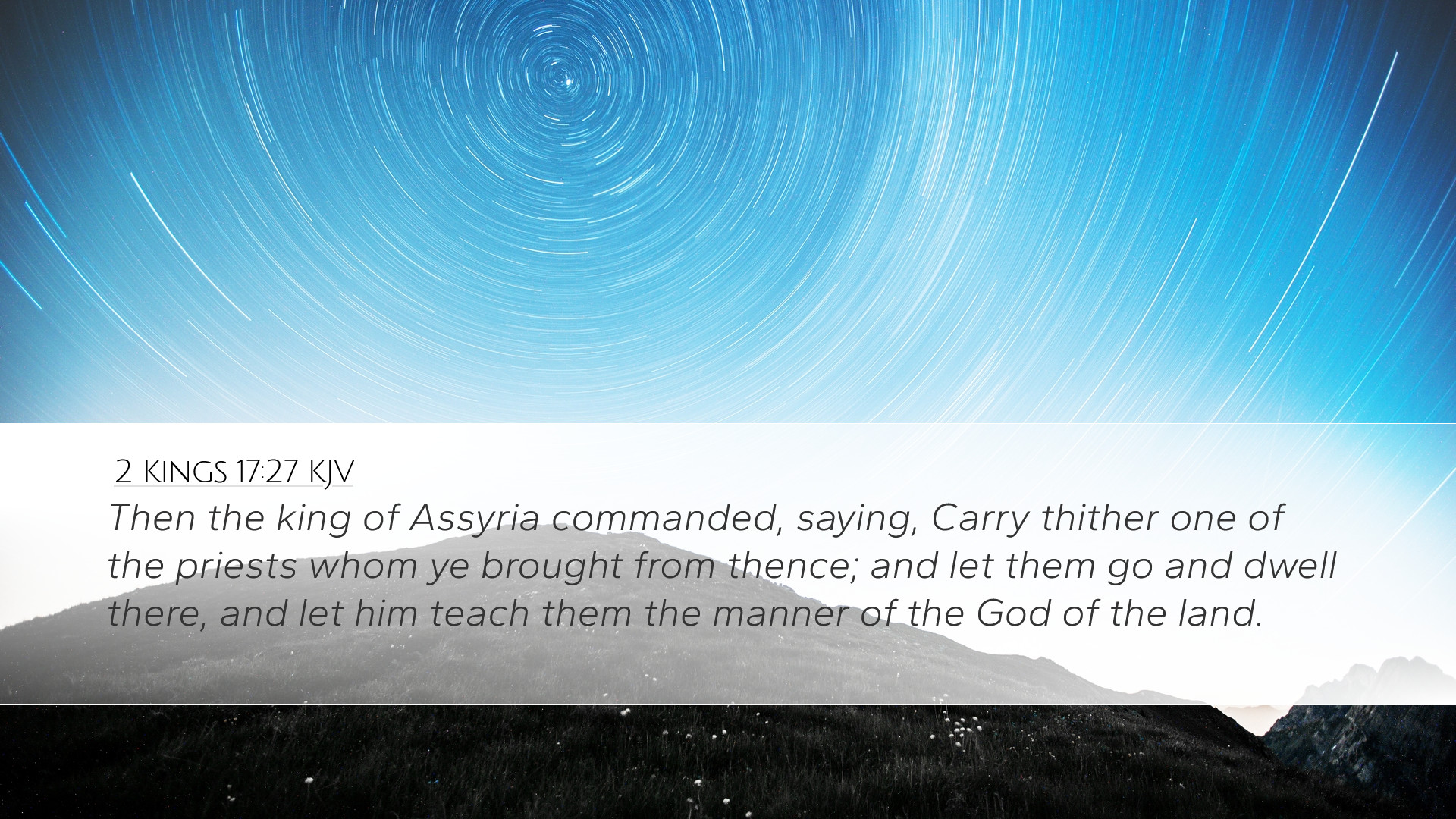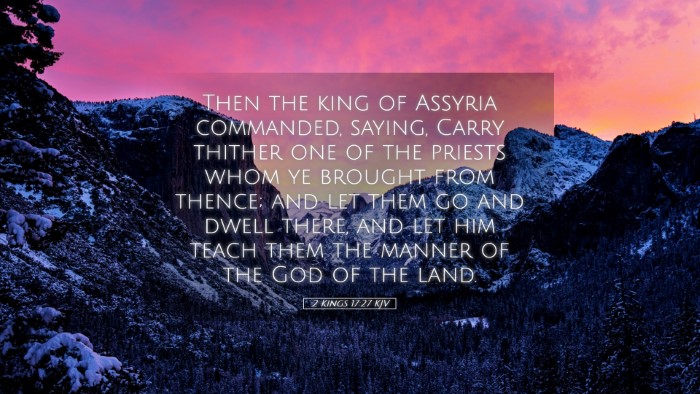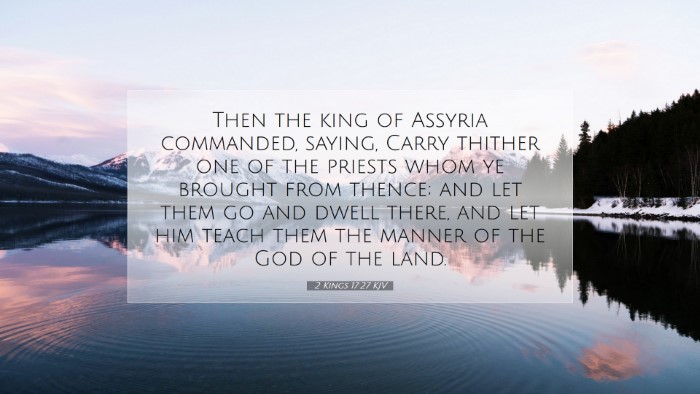Commentary on 2 Kings 17:27
Verse: "Then the king of Assyria commanded, saying, Take there one of the priests whom ye brought from thence; and let them go and dwell there, and teach them the manner of the God of the land."
Introduction
2 Kings 17:27 provides a pivotal moment in the narrative of the Israelites' exile and the Assyrian conquest. The verse captures the Assyrian king’s command to send back a priest to teach the newly settled foreigners about the worship and service of the God of Israel. This reflects significant theological and sociopolitical themes of the time.
Contextual Analysis
The historical backdrop of 2 Kings 17 is the fall of the northern kingdom of Israel to the Assyrians, an event that symbolized judgment due to Israel's persistent idolatry and disobedience. The exile was not only a punishment but also a formative moment that intended to reshape the identity and worship practices of both the Israelites and the newly settled peoples.
Theological Insights
This verse illustrates the interplay between divine sovereignty and human agency. The Assyrian king, although not a worshiper of Yahweh, recognizes the need for an understanding of the local deities. The tension between faithfulness and adaptation, holiness and the surrounding pagan culture, is an enduring theme in biblical history.
Commentary Highlights
-
Matthew Henry:
Matthew Henry emphasizes the irony of a foreign king commissioning a priest to teach the worship of God. He notes that this reflects God’s providential control over the situation, suggesting that even in exile, God is active in preserving His worship and knowledge of Himself among different peoples.
-
Albert Barnes:
Barnes elucidates the implications of sending a priest back to teach the manner of God. He posits that this action was meant to mitigate the fears of the new inhabitants, to establish some order in the worship practices, and to promote a semblance of peace among the diverse groups residing in the land. This reflects an understanding of religious assimilation within the Assyrian strategy.
-
Adam Clarke:
Clarke discusses the sociocultural implications of the Assyrian policy in the land of Israel. He describes how the introduction of a priest to teach Yahweh's worship was an attempt to unify the various groups in the territory, showing the Assyrians’ tactical approach to governance and integration.
Lessons for Pastors and Theologians
This verse serves as a profound illustration for contemporary readers about the nature of leadership and the necessity of authentic religious instruction. Pastors may consider the implications of how religious leaders engage with surrounding cultures and the importance of teaching faith authentically and meaningfully. The verse also raises questions about hybrid identities and the challenges of maintaining faithfulness amidst external influences.
Contemporary Application
Modern churches can find relevance in this passage by reflecting on how to teach and promote biblical faith in an increasingly pluralistic society. It challenges congregations to be both rooted in their faith while also engaging meaningfully with different perspectives. Additionally, it reminds believers of the importance of sound doctrine in navigating cultural complexities.
Conclusion
2 Kings 17:27 serves as a reminder of God's sovereignty even in tumultuous times. It invites reflection on how God's truth can be communicated across diverse cultures, and the responsibility of leaders to teach authentically within the community. The balance of faithfulness and adaptation is a constant theme that continues to enrich the lives of believers and the ministry of the church today.


